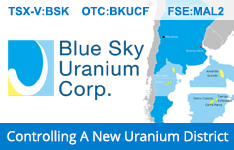"Who are you? (I really want to know.)" – The Who
In the last decade, companies such as privately held Trulioo have made significant inroads in monetizing digital ID. The Vancouver-based company has catapulted to an estimated valuation of $1.75 billion, according to a June article in the Financial Post. The U.S. digital identity market is projected to exceed $30 billion by 2023, according to consulting firm One World Identity. Trulioo raised nearly $400 million in June with leading tech venture funds such Amex Ventures, Citi Ventures, Blumberg Capital and Mouro Capital.
You and I can't play in that sandbox, but we can certainly leverage an investment in Liquid Avatar Technologies Inc. (LQID:CSE; LQAVF:OTCQB) with a current market capitalization of less than $15 million and nothing but upside potential. The value proposition is that Liquid Avatar will potentially create a sea of millions of digitally and biometrically verified consumers and merchants who can confidently transact with one another. LQID will take a token percentage of these transactions (mostly via merchants), with revenues built through a software as a service (SaaS)-based model. The company will also provide "white-label" verification services to merchant and identity issuers and is now offering consumers its own ID-verified Visa card.
As the company puts it:
- Liquid Avatar Technologies provides verified users with Self Sovereign Identity services to manage, control and benefit from their digital identity.
- Liquid Avatar supports issuers and verifiers in the validation of verifiable credentials through a SaaS-based platform.
Securing transactions is nothing new to Lucatch, who in the early 1980s developed the CPAC technology that enabled consumers to "insert your credit card and password" for the big Canadian financial institutions. The game-changer for Lucatch and LQID today is the use of blockchain technology. "In the first time in my career I've never had to move a stake," he says, referring to how the market demand has shifted to his technology, rather than the other way around.
"We make your digital identity easier to use, more accessible, easy to verify. We make it easier for the issuer to issue a credential that verifies who you are, and make it easier for you to manage, control and benefit from your digital identity." Through the use of a "private blockchain network," Lucatch and his team have essentially developed technologies that enhance a "trust triangle" in a digital transaction.
The Trust Triangle
There are three players in a digital transaction:
Holder—You! A person who holds the digital ID. Manages credentials that are created by issuers and tied to a user's identity, and uses them to create presentations of proofs for verifiers
Verifier—The organization requesting proof, such as a school, airline, government, location or merchant; verifies that issuer attestations satisfy requirements
Issuer—An entity such as a government or healthcare testing facility, e.g., they create the credential that is attached to a user's identity digitally and packages and gives credentials to holders
Here's a concrete example of how this can work in today's COVID-cautious landscape.
"Dave" (Holder) has a vaccination credential issued by the state of California (Issuer) and is about to enter Dodger Stadium (Verifier). The stadium attendant scans a QR code on Dave's ID/smartphone, the QR code initiates the transaction, the state of California challenges Dave, requiring him to "use your pin or show us your face." Dave's camera turns on his face, Liquid Avatar's system, which is facilitating the transaction: "Yes, we have your facial map (with the user's expressed permission) on file. We agree that this is Dave and he has a credential issued by the state of California, so you should let him in because he has his vaccination." And off Dave goes into Dodger Stadium: the transaction completes and the triangle dissolves.
Monetizing Digital Identity
That all sounds fine and dandy, but how does Liquid Avatar Technologies monetize this? Where does it fit in? The dilemma was how to make digital ID easier to use. "With digital identity addressable to potentially 100% of the online market, or almost 322 million people online in North America and over 5 billion people worldwide, it's only in the last few years that digital identity and the technology required to power it have been made broadly available, and that is really blockchain technology. You had to be able to develop processes that rely on trust-less mechanisms to be able to prove that person is who they say they are."
"We've taken a page from the Google model," says Lucatch. "If we empower the user to engage his/her own identity, we know that that user is a real person, not a fake, not a bot, not a hack because we've done the biometric verification." Liquid Avatar quickly and easily achieves this by first requiring the user to take a picture of their face and create a username and password. The ID validation is then built by the user him/herself and stored for the user's access securely in the cloud. Sensitive data is not hosted on the users' device, so if the user loses their mobile phone or it's compromised, no secure data is lost.
"Identity is not just who you are, it's the things you do and the places you go," says Lucatch. These additional sources, which are curated by the user, can include governments, healthcare providers, financial institutions, passwords, workplace data, ecommerce activity, events, social gaming and travel.
The Liquid Avatar team had already been developing technology for internet transactions for 20-odd years and knew by 2017 that digital identity could be supported by the blockchain. "It's been said trying to embed digital identity into the internet is like trying to change an airplane engine in mid-flight without disturbing the passengers; it's a really tough situation," Lucatch explains. "Credit card fraud is a $30-billion-per-year industry globally, and digital ID could bring that down substantially." He adds that it could also take passport violations and fraud around other government and institutionally issued ID down dramatically. Liquid Avatar Technologies sees huge opportunities around global healthcare testing, vaccine verification for international travel, but more on that later.
Meanwhile, Liquid Avatar has already enlisted nearly 600 international merchants with the goal to connect millions of ID-verified consumers. "As far as the merchants are concerned, if you can connect me to pre-screened real person—that is a huge value proposition for us. The merchant doesn't have to waste time advertising to fake people. The merchant will give Liquid Avatar a percentage on the transaction and the consumer a better deal."
Liquid adopted a no-cost SaaS model for consumers because it is accessible, downloadable, on-demand software; and to ensure rapid, mass adaption the app is available to consumers for free. "Instead, we'll bring vendors to the table and partner them in our app. When a consumer engages with a vendor, we never sell them our data but the vendor is going to pay us something for each transaction," Lucatch says.
The Liquid Avatar ID solution proved so strong that the company has earned the right to issue its own Visa products. "We are approved by Visa to issue our first products in Canada, with opportunities to expand into other regions with our own Visa product—that's how powerful we believe our technology is."
Introducing Business Solutions
Liquid Avatar Technologies has introduced its Liquid Avatar Verifiable Credentials Ecosystem to support business-to-business solutions for verification and validation of credentials. These include SaaS services for organizations to issue credentials, like identity, access and qualifications that a user can hold in a digital wallet to present as needed. For governments, this can include vaccination credentials, digital drivers' licenses and other types of ID. For businesses, this can include workplace ID, membership information and credentials that replace usernames and passwords, which users always forget and which cost businesses millions to manage. Just think about no username and password and only your digital credential and face to get into a website. That might drastically reduce hacking and phishing issues.
The Fun Factor
At this early "proof of concept" stage, revenue projections are a little premature, but in its pilot launch the company has already enlisted almost 20,000 users and is looking to ramp up this fall, incorporating feedback and introducing its business-to-business products. It has achieved that by making the Liquid Avatar Mobile App, which is available at the Apple App Store and on Google Play, fun and appealing for consumers. The opportunities are boundless for user and merchant engagement: creating your own ID avatar, gamifying, pins, badges, lockers, creator programs, creation studio, user-generated uploads, Liquid Avatar marketplace, cashback and loyalty programs with card linking, augmented reality, verification incentives, and more.
All of this leads to more "stickiness" and customer retention with huge opportunities for mass adaptation and big data. Step one is securing the users and merchants, then the growth opportunities for Liquid are boundless.
Knox Henderson is a former equities securities trader, a journalist and capital markets communications consultant. He has advised for a broad range of small-cap companies in the resource, life sciences and technology sectors for more than 25 years.
[NLINSERT]
Disclosure:
1) Knox Henderson: I, or members of my immediate household or family, own securities of the following companies mentioned in this article: None. I personally am, or members of my immediate household or family are, paid by the following companies mentioned in this article: None. My company has a financial relationship with the following companies mentioned in this article: None.
2) The following companies mentioned in this article are billboard sponsors of Streetwise Reports: None. Click here for important disclosures about sponsor fees. The information provided above is for informational purposes only and is not a recommendation to buy or sell any security. As of the date of this article, an affiliate of Streetwise Reports has a consulting relationship with Liquid Avatar. Please click here for more information.
3) Statements and opinions expressed are the opinions of the author and not of Streetwise Reports or its officers. The author is wholly responsible for the validity of the statements. The author was not paid by Streetwise Reports for this article. Streetwise Reports was not paid by the author to publish or syndicate this article. Streetwise Reports requires contributing authors to disclose any shareholdings in, or economic relationships with, companies that they write about. Streetwise Reports relies upon the authors to accurately provide this information and Streetwise Reports has no means of verifying its accuracy.
4) This article does not constitute investment advice. Each reader is encouraged to consult with his or her individual financial professional and any action a reader takes as a result of information presented here is his or her own responsibility. By opening this page, each reader accepts and agrees to Streetwise Reports' terms of use and full legal disclaimer. This article is not a solicitation for investment. Streetwise Reports does not render general or specific investment advice and the information on Streetwise Reports should not be considered a recommendation to buy or sell any security. Streetwise Reports does not endorse or recommend the business, products, services or securities of any company mentioned on Streetwise Reports.
5) From time to time, Streetwise Reports LLC and its directors, officers, employees or members of their families, as well as persons interviewed for articles and interviews on the site, may have a long or short position in securities mentioned. Directors, officers, employees or members of their immediate families are prohibited from making purchases and/or sales of those securities in the open market or otherwise from the time of the decision to publish an article until three business days after the publication of the article. The foregoing prohibition does not apply to articles that in substance only restate previously published company releases. As of the date of this article, officers and/or employees of Streetwise Reports LLC (including members of their household) own securities of Liquid Avatar, a company mentioned in this article.






























































